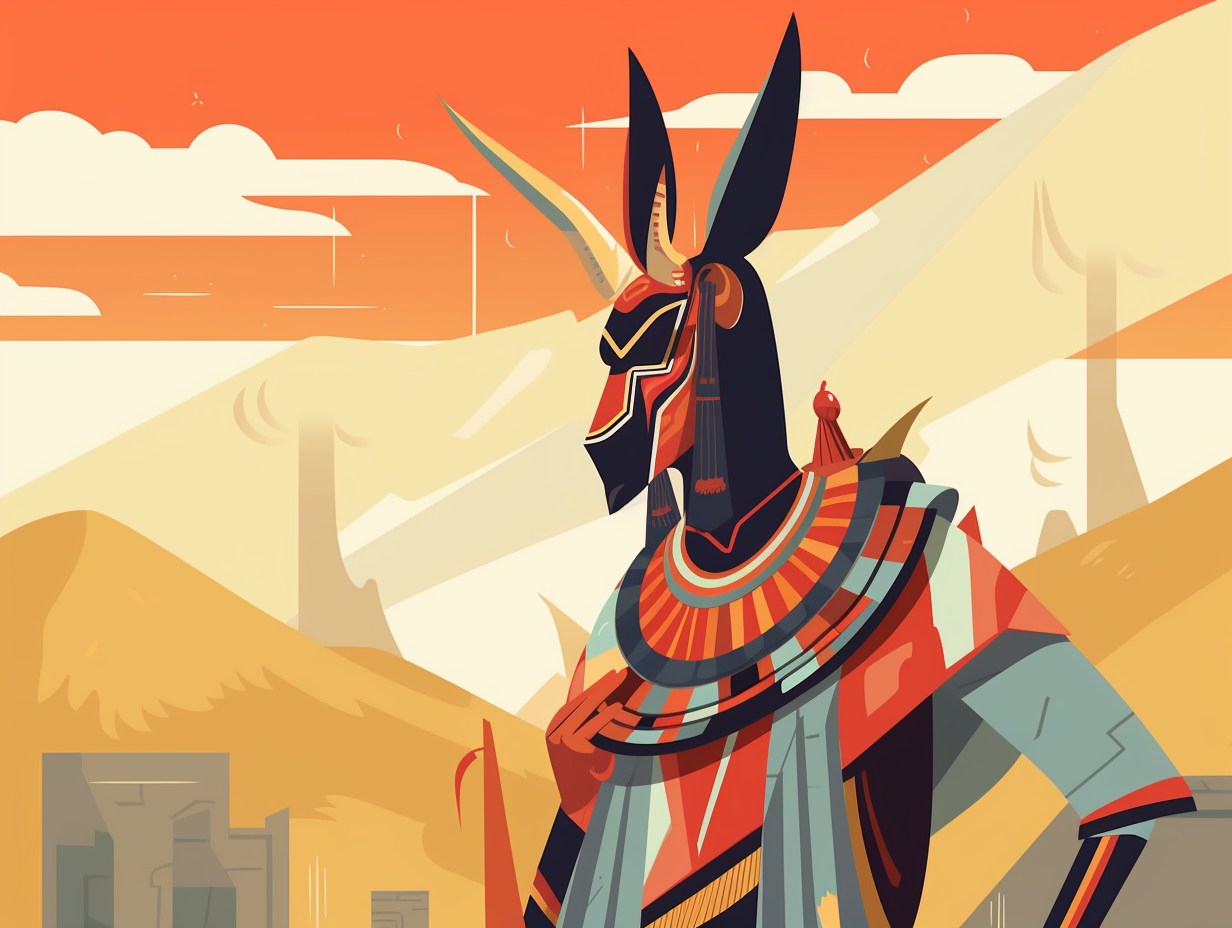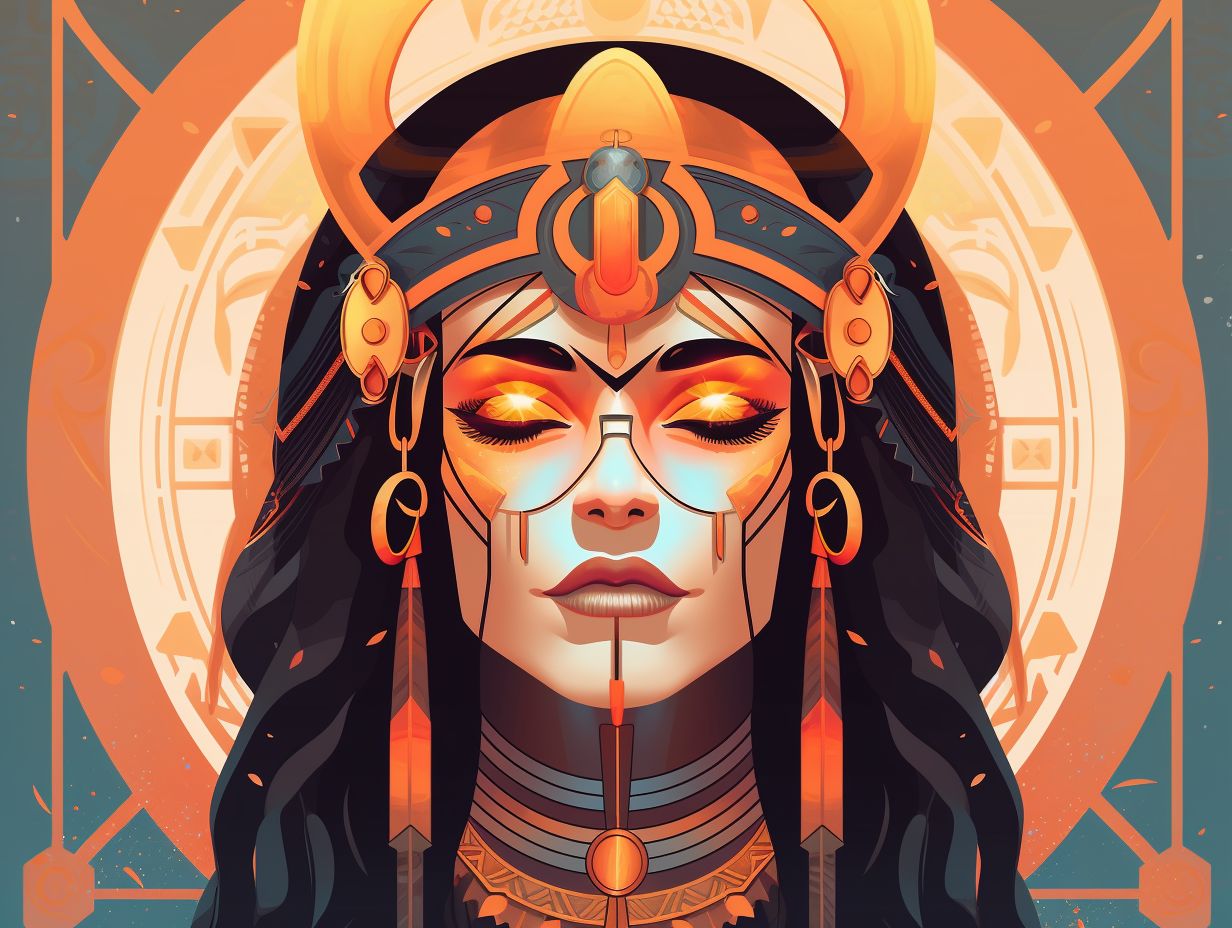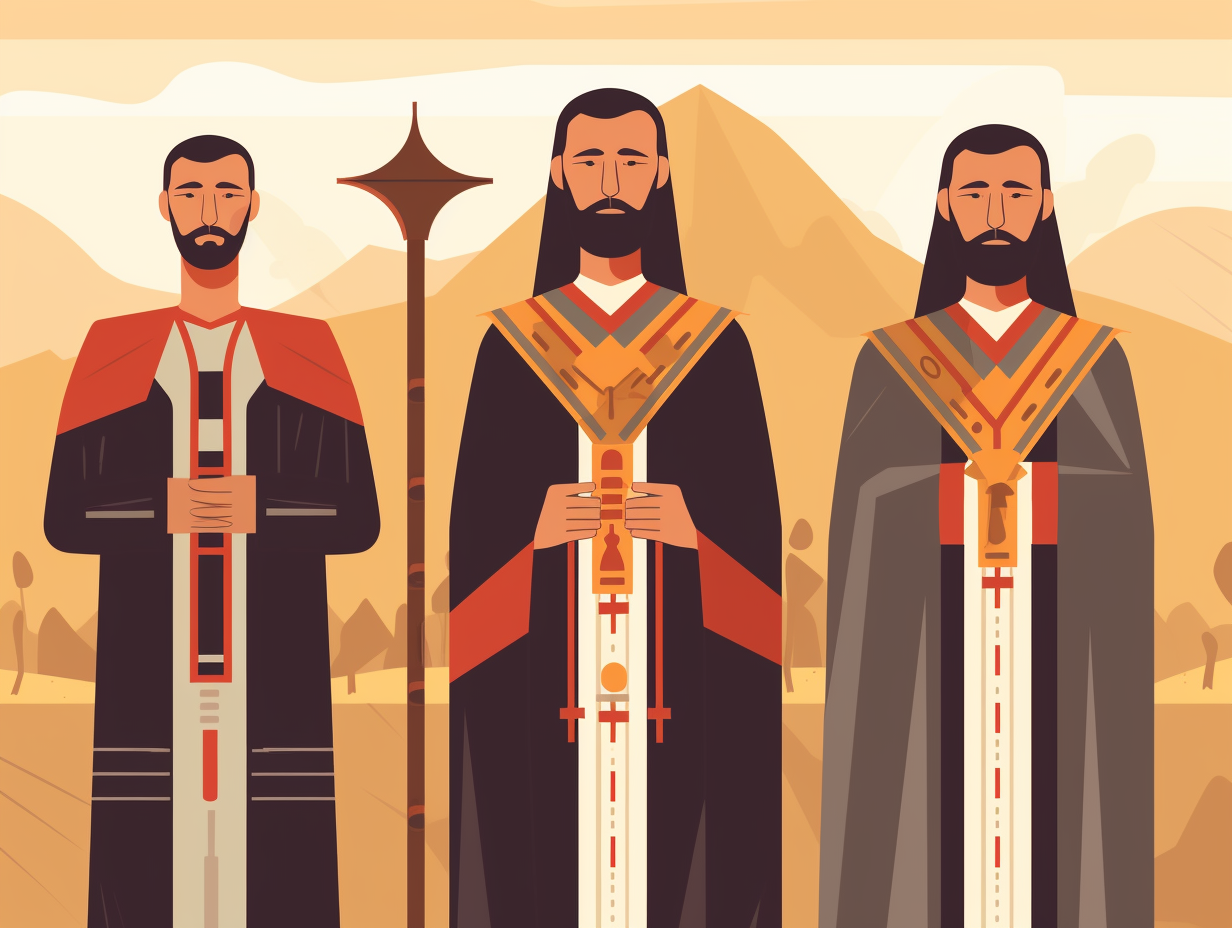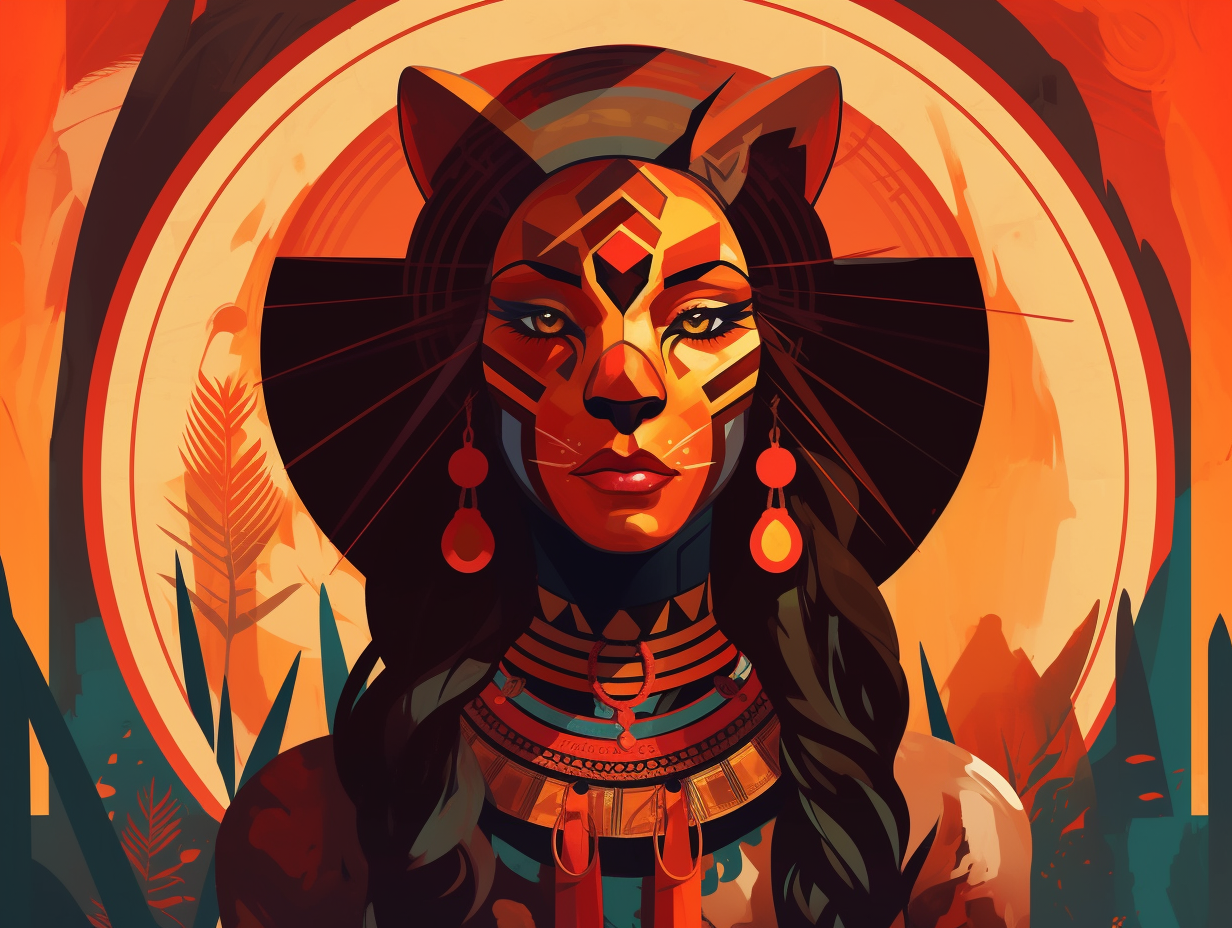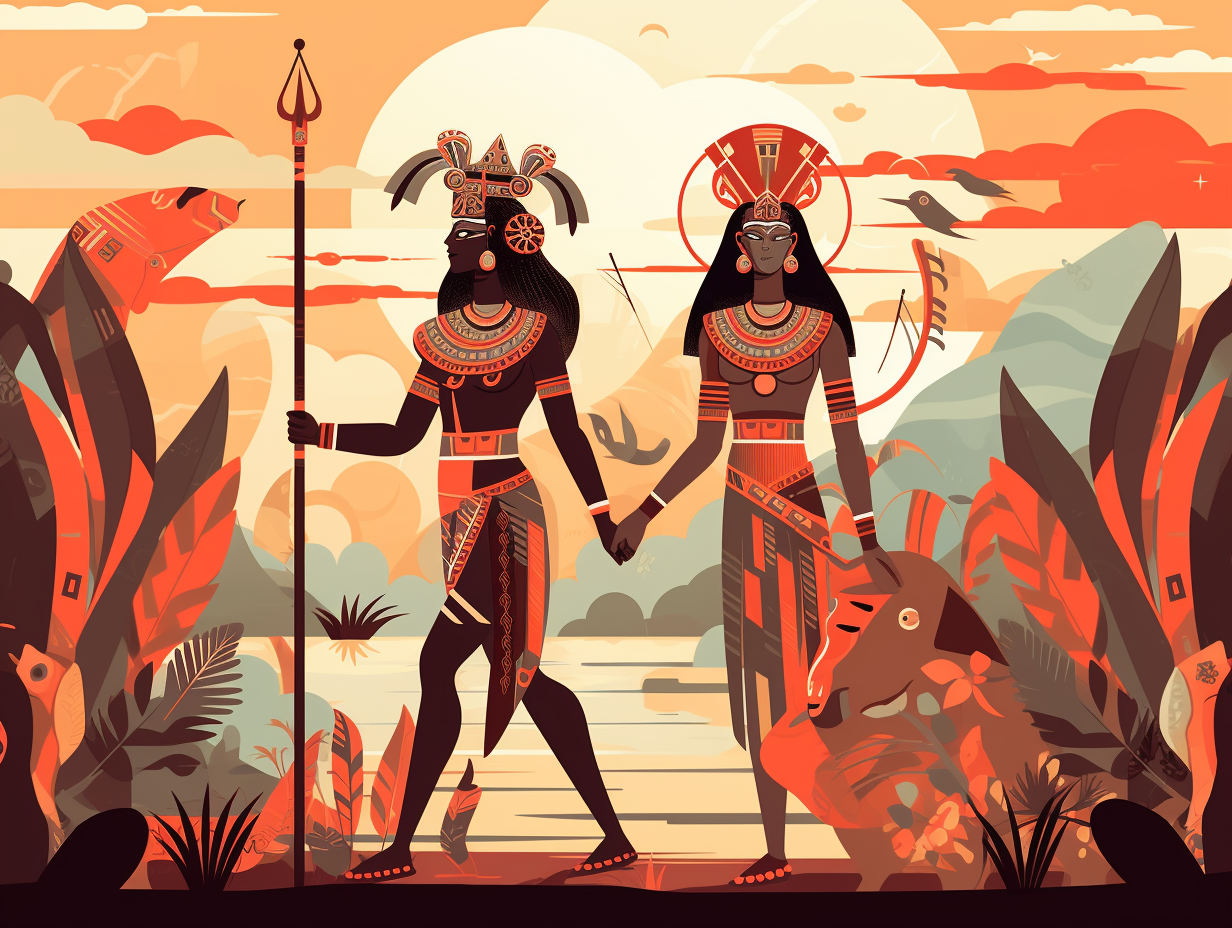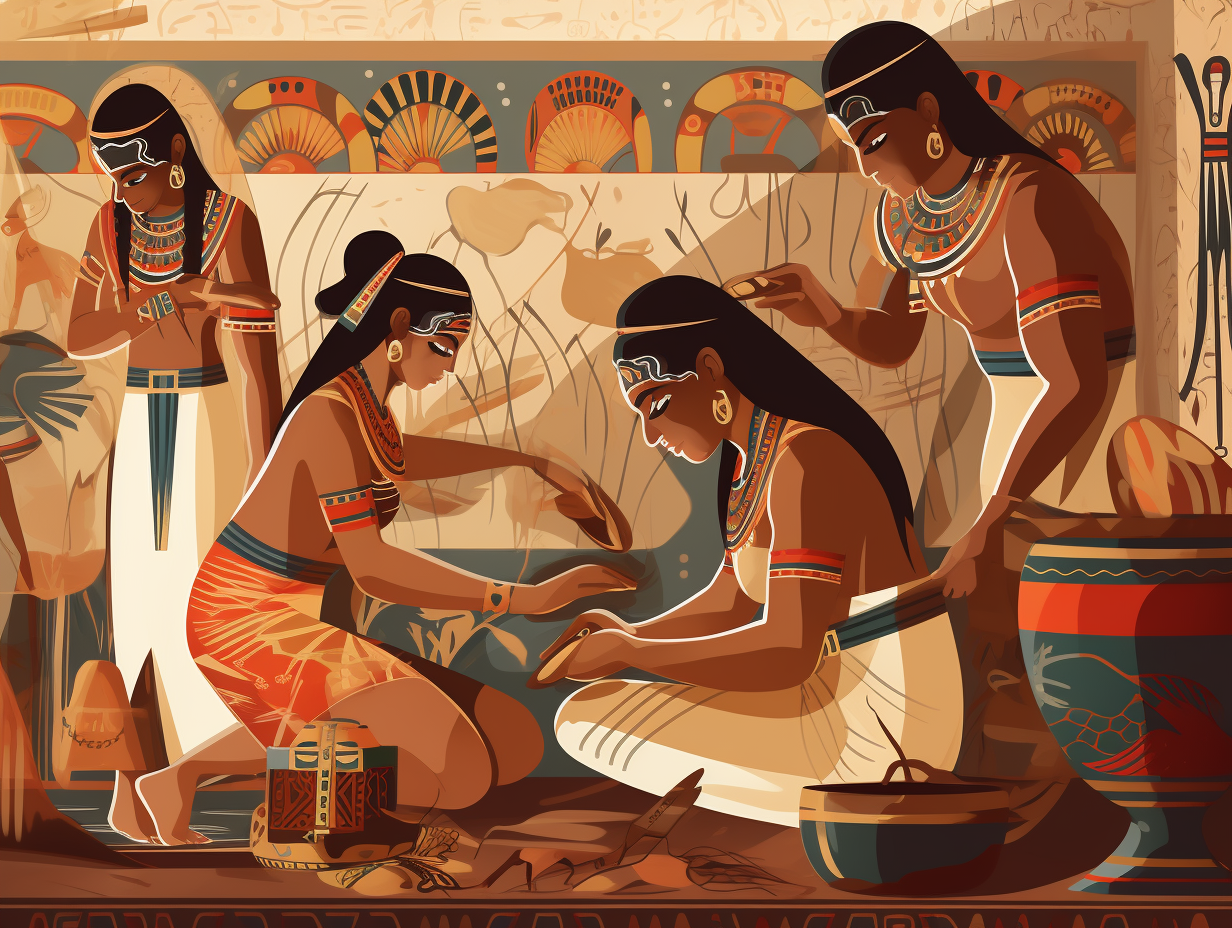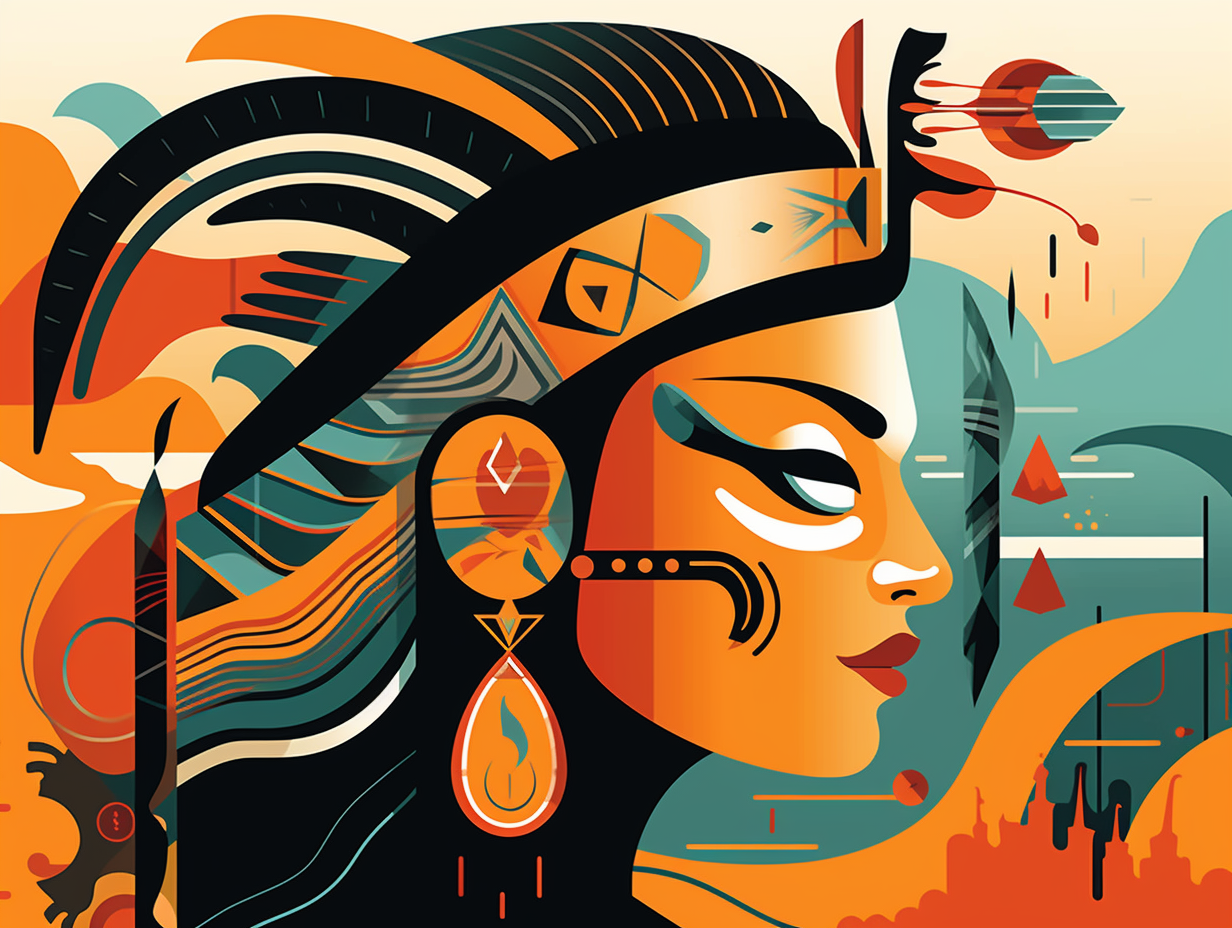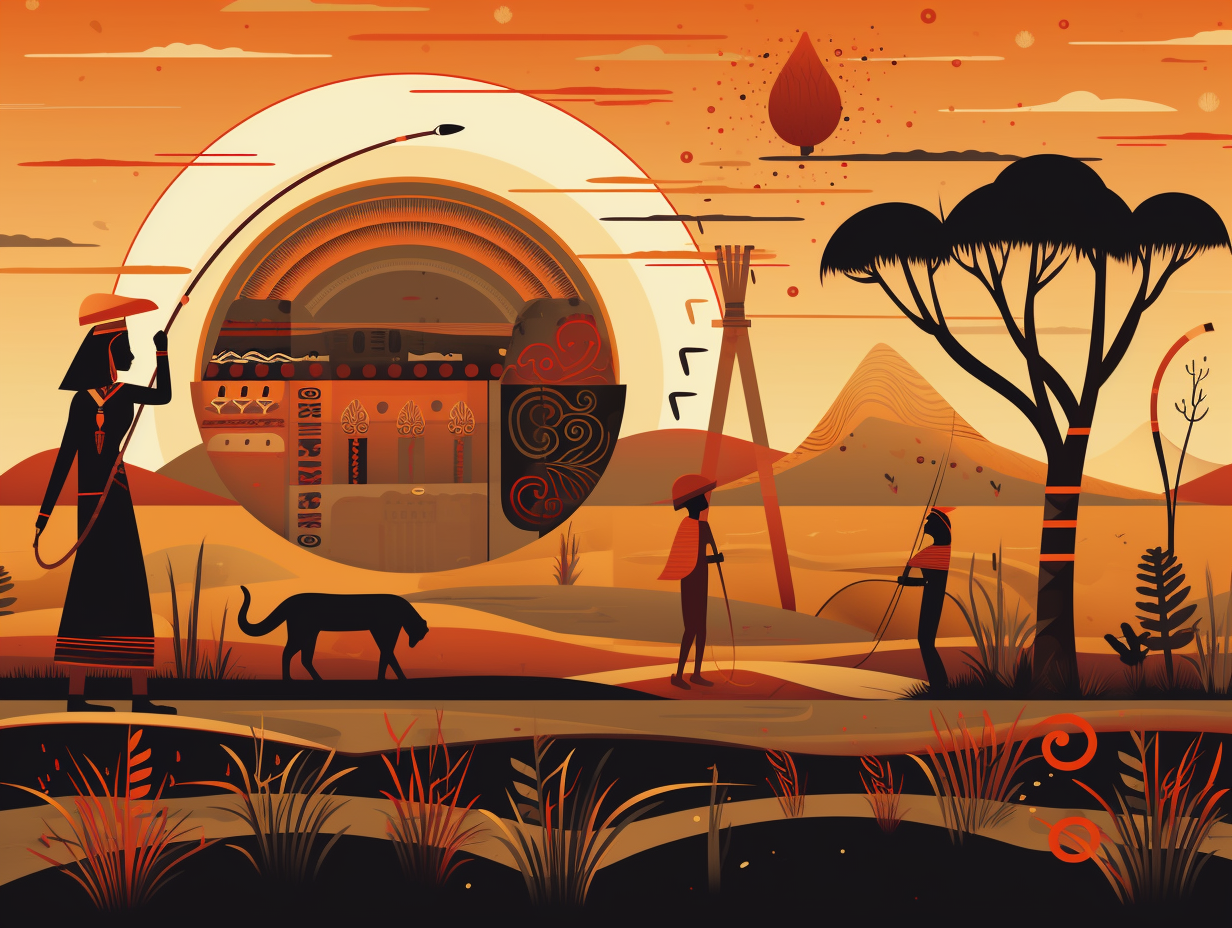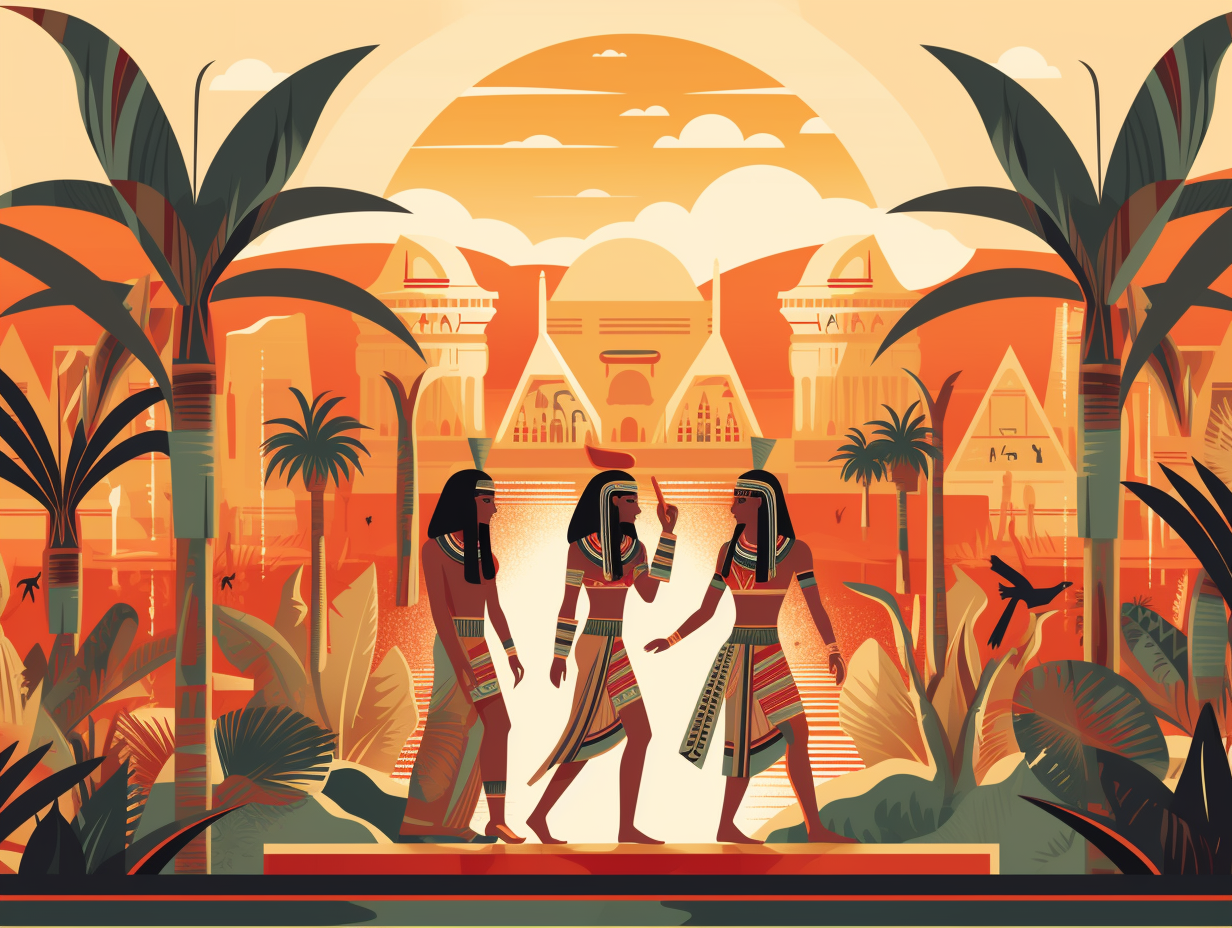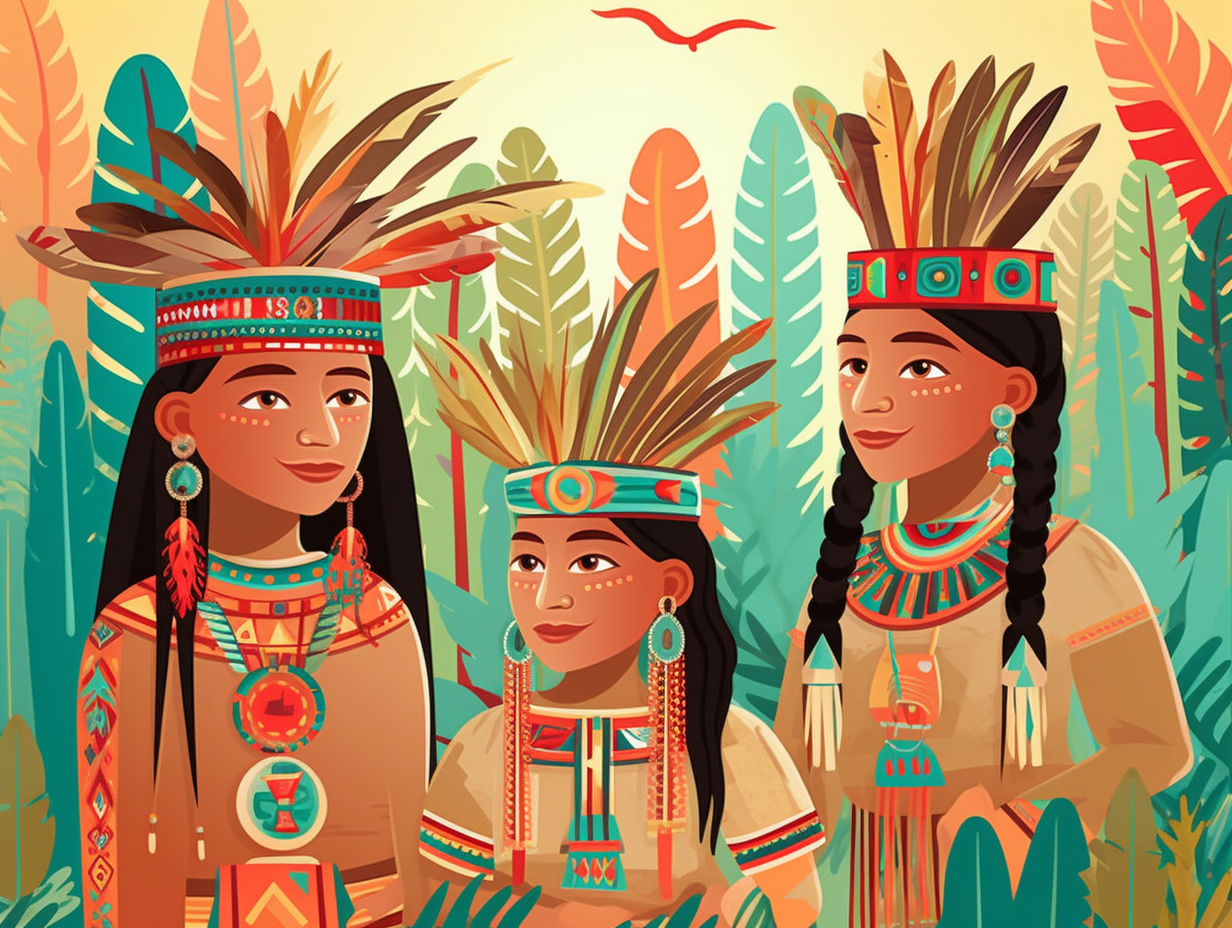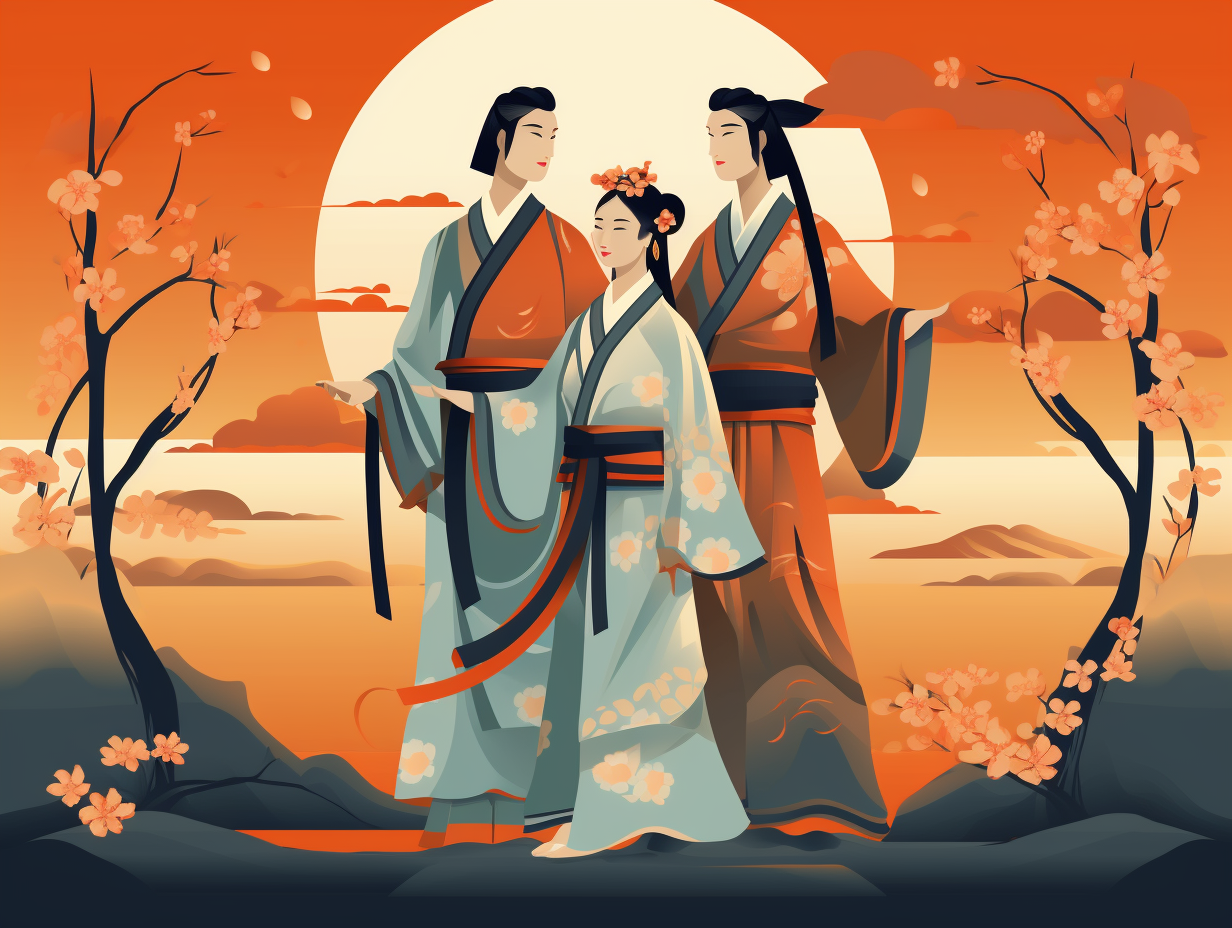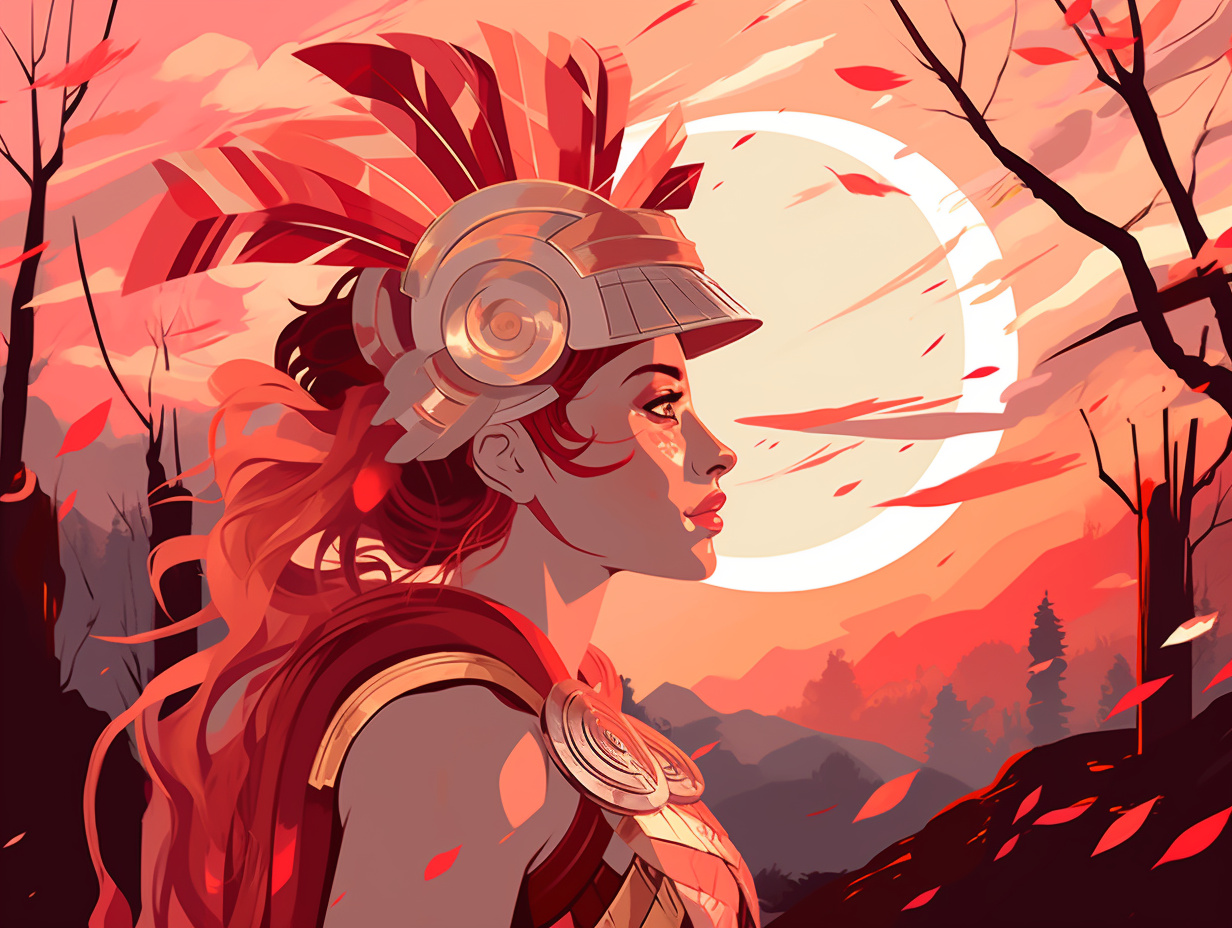Discover the Secrets: Top 12 Amazing Fun Facts About Ancient Egypt's Religion
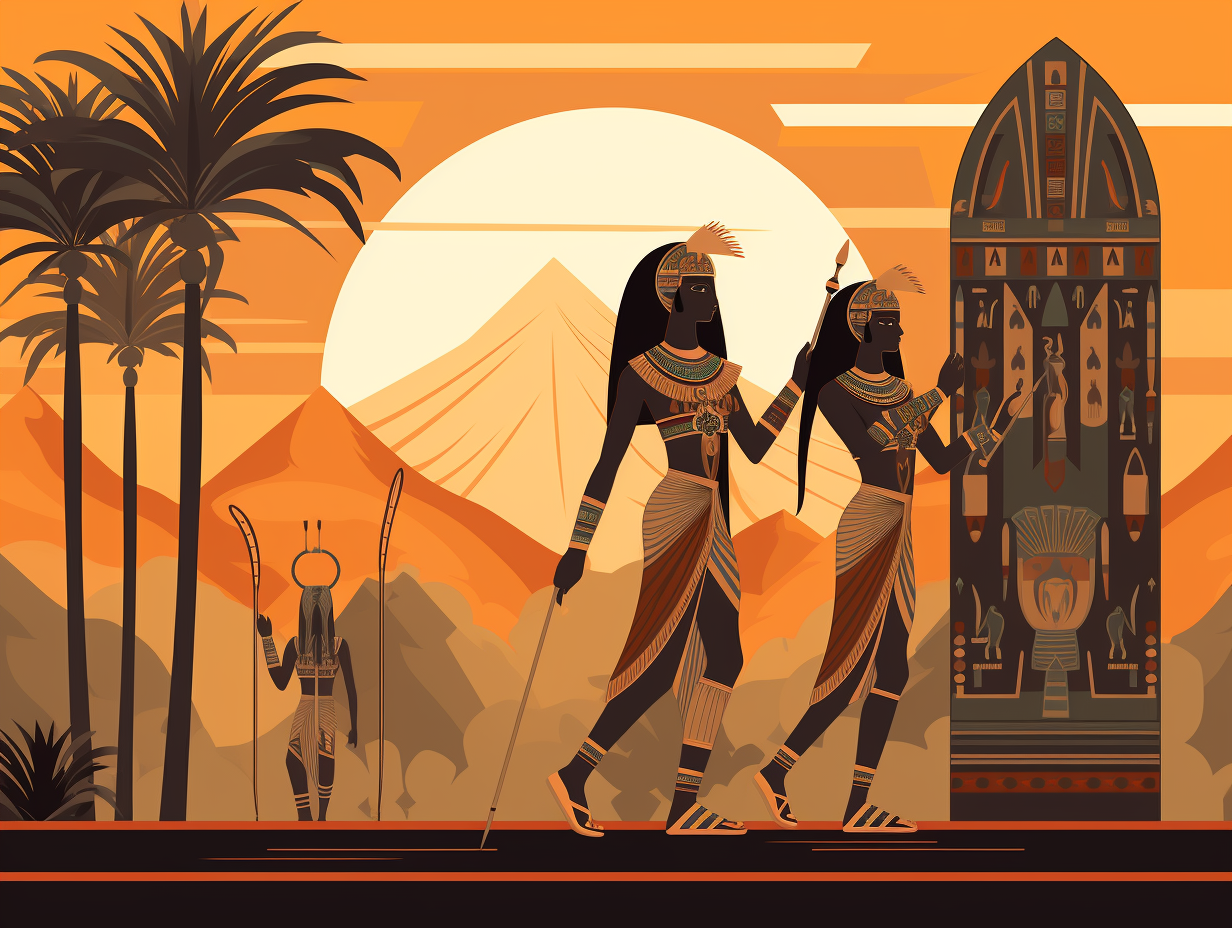
1. Benevolent Sphinx Guardians
Whoever said "don't judge a sphinx by its riddle" clearly understood Ancient Egyptian religion: contrary to the sneaky and lethal reputation Greek myths foisted upon them, sphinxes were seen as benevolent guardians, made of stone and stern countenance to keep evil at bay from temples and tombs, including the iconic Great Sphinx of Giza – which might even predate the Pharaoh Khafre it's commonly linked to!
Source => en.wikipedia.org
2. All-Star Egyptian God Squad
In ancient Egypt, the gods had quite the squad goals: boasting an all-star lineup of jackal-headed embalmers, falcon-headed visionaries, and seasoned afterlife experts. Fear the re-gods: worshipped throughout Egypt, these colorful characters included notables like Osiris, Anubis, and Horus, covering all bases when it came to life, death, and everything in between.
Source => australian.museum
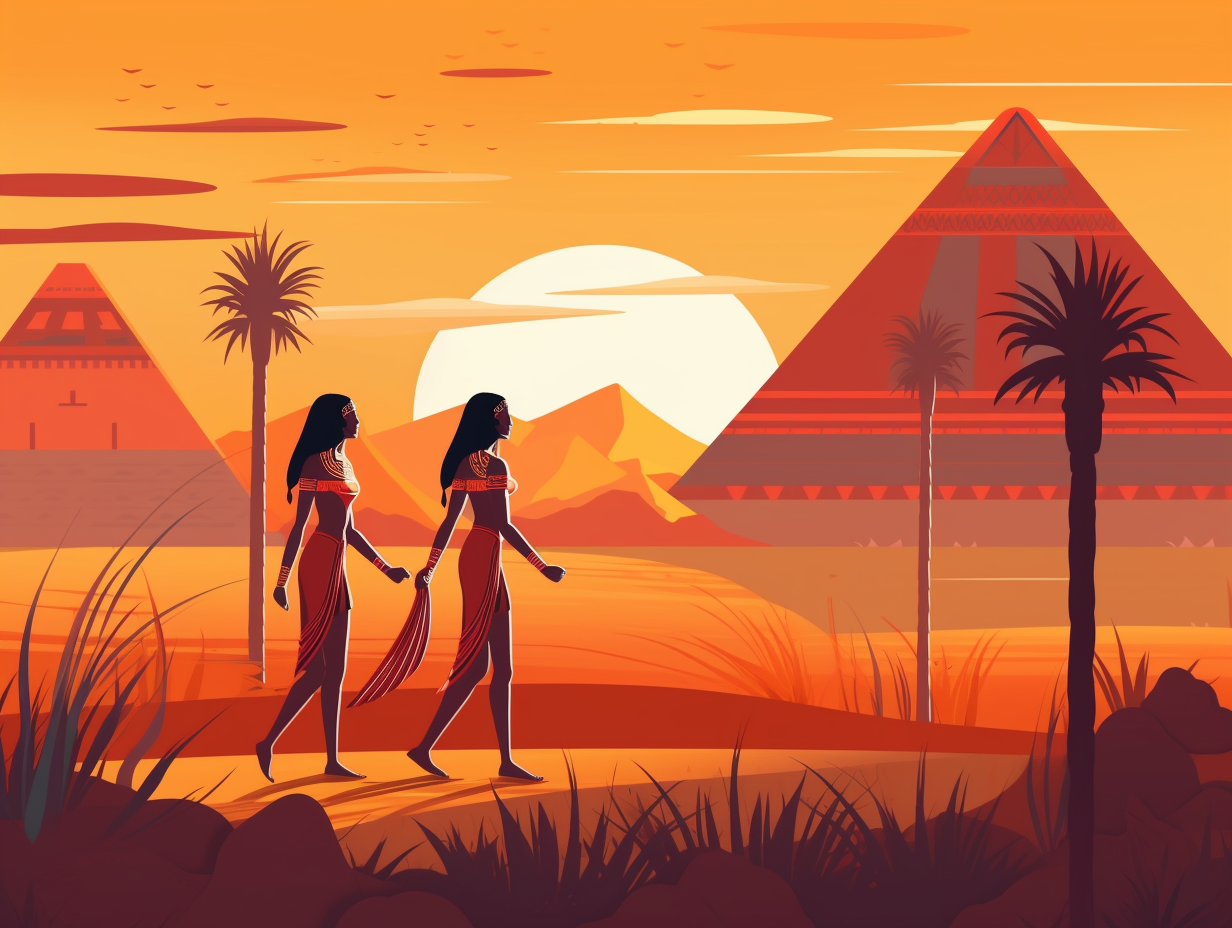
Did you know that the "pharaoh of sunscreen" Franz Greiter invented the sun-defending Glacier Cream in the 1930s, introducing the world to SPF and revolutionizing sun protection? Discover how this invention led to a multi-billion dollar industry! 🌞💡
=> Fun Facts about Egypt
3. Feline Guardians and Divine Vessels
In ancient Egypt, cats were the literal cat's pajamas: Not because they were worshiped as gods, but because they were considered vessels of the gods, revered as protectors and fierce hunters. The goddess Bastet, often associated with our feline friends, guarded households and played a role in one's afterlife, but never received prayers asking her to cough up a furball.
Source => thecollector.com
4. Your Heart's Role in the Afterlife
You know how people say "listen to your heart?" The Egyptians took it to a whole new level, they even gave their hearts a starring role in their afterlife, while the brain was on the sidelines, as nothing more than a cosmic cheerleader! Seriously, though: Ancient Egyptians believed the heart was key to the afterlife, where it provided evidence for or against a person during the weighing of the heart ceremony, revealing one's true character - all while the brain comfortably remained out of the afterlife limelight.
Source => ncbi.nlm.nih.gov
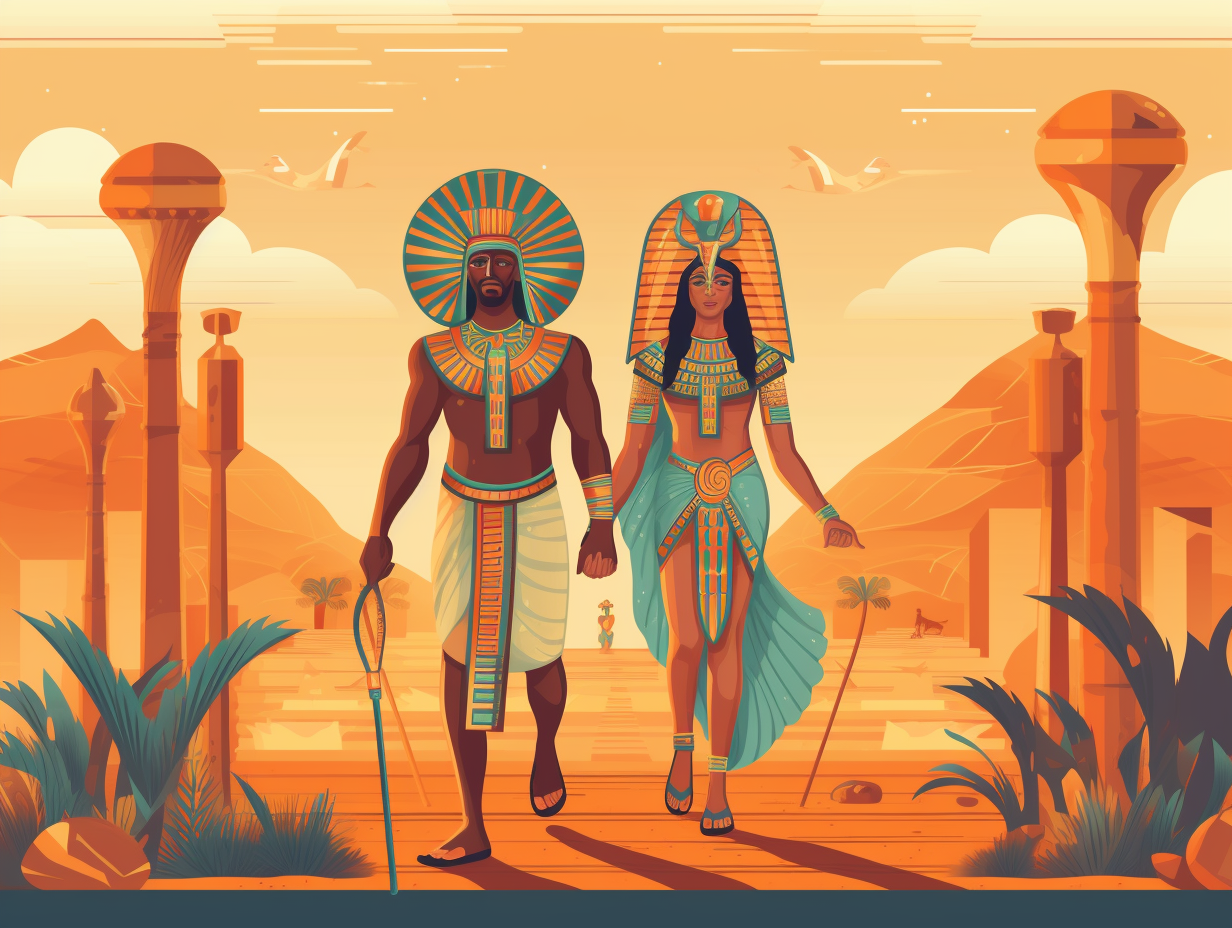
5. Food for the Gods
Move over, Masterchef, ancient Egypt had the original culinary competition: In every temple, designated persons whipped up and served delectable offerings for gods, kings, and the blessed dead, believing that these delicious dishes would sustain their deities and maintain cosmic balance. But don't worry - the gods weren't literally devouring those divine delicacies; these food offerings were more of a symbolic gesture, feeding the spiritual bond between Egyptians and their celestial companions.
Source => ucl.ac.uk
6. Priests and Priestesses - Knowing Their Roles
Whoever said ancient Egyptian priests were the original "Jack of all trades" clearly didn't do their homework: In reality, priests and priestesses like hem-netjer, hemet-netjer, ka-priests, and sem priests each had distinct roles serving deities in temples, but never led religious ceremonies or chatted with the gods outside their job description.
Source => worldhistory.org
7. Thoth's Moon-Winning Gamble
Did Thoth have the best poker face in ancient Egypt, or did the Moon just fold under pressure? You decide: Thoth, the ancient Egyptian deity, won a gamble with the Moon and gained an extra 5 days, allowing Nut and Geb to birth Osiris, Set, Isis, and Nephthys, thus creating the 365-day calendar we use today.
Source => en.wikipedia.org
8. Negative Confessions and the Afterlife
Before confessing to eating the last slice of pizza, ancient Egyptians practiced their guilt-free skills in a slightly more, shall we say, "eternal" setting: Their afterlife journey involved a Negative Confession in the Hall of Truth, where they proclaimed all the naughty things they hadn't done. If their heart weighed less than a feather after this amusing recital, they'd hitch a ride with the ferryman Hraf-haf and zip off to the Field of Reeds for endless good times.
Source => worldhistory.org
9. Beer: Ancient Egypt's Divine Staple
Party like it's 1999 BC: Ancient Egyptians were such beer enthusiasts that it became a daily staple, with women kicking off the brewing tradition and over 100 beer recipes finding their way into medical texts. This frothy goodness was consumed by all ages and even offered to the gods and the dead, making it one part holy beverage, one part laborer's salary, and 100% "ale"-mazing!
Source => worldhistory.org
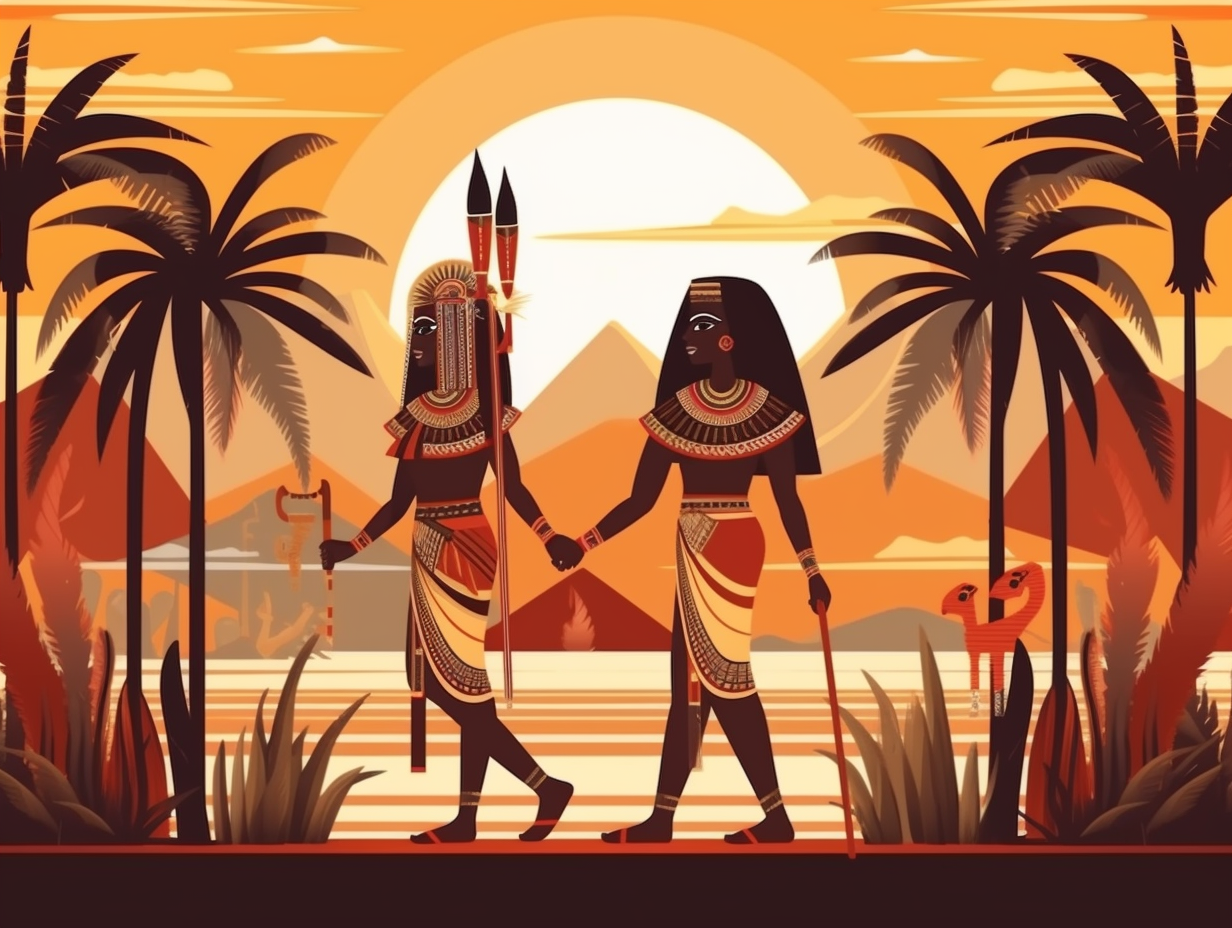
10. Your VIP Heart at the Afterlife Party
Your heart isn't just for wearing on your sleeve in ancient Egypt! This body's center of emotion was a VIP when it came to the afterlife party scene: In ancient Egyptian belief, the heart was thought to contain the essence of one's soul, known as the ka, and needed to be removed during mummification so it could reunite with the body in the afterlife, guiding the person to manifest in a new form.
Source => carnegiemnh.org
11. Celestial Sirius and Flooding Festivals
Before the age of "Netflix and chill" or even "Hulu and ensnuggle," ancient Egyptians were experts at "Celestial Sirius and flooding festival": Their calendar, based on the Nile's cycles and the appearance of the glittering Dog Star Sirius, operated on a 365-day system with 12 months having 30 days each, and tacked on an extra 5 festival days reserved for feasting and ceremonies during the Nile's annual floods, keeping the festivities vibrant under the watchful gaze of esteemed seers and astrologers.
Source => factsanddetails.com
12. Heart-Stopping Afterlife Auditions
In ancient Egypt, heart-stopping drama wasn't just for soap operas – it was an all-important afterlife audition with a lifehack twist: During the "Weighing of the Heart" ceremony, Egyptians believed the deceased's heart was weighed against the feather of the goddess Ma'at to determine their virtue, but by reciting a spell inscribed on their heart scarab amulet, they could cheat the system and save their souls from eternal darkness.
Source => australian.museum
Related Fun Facts



